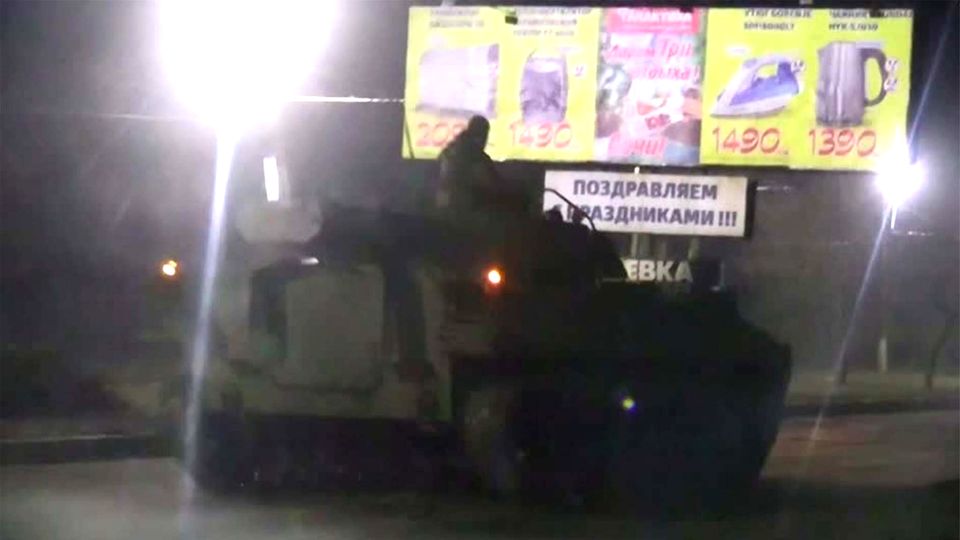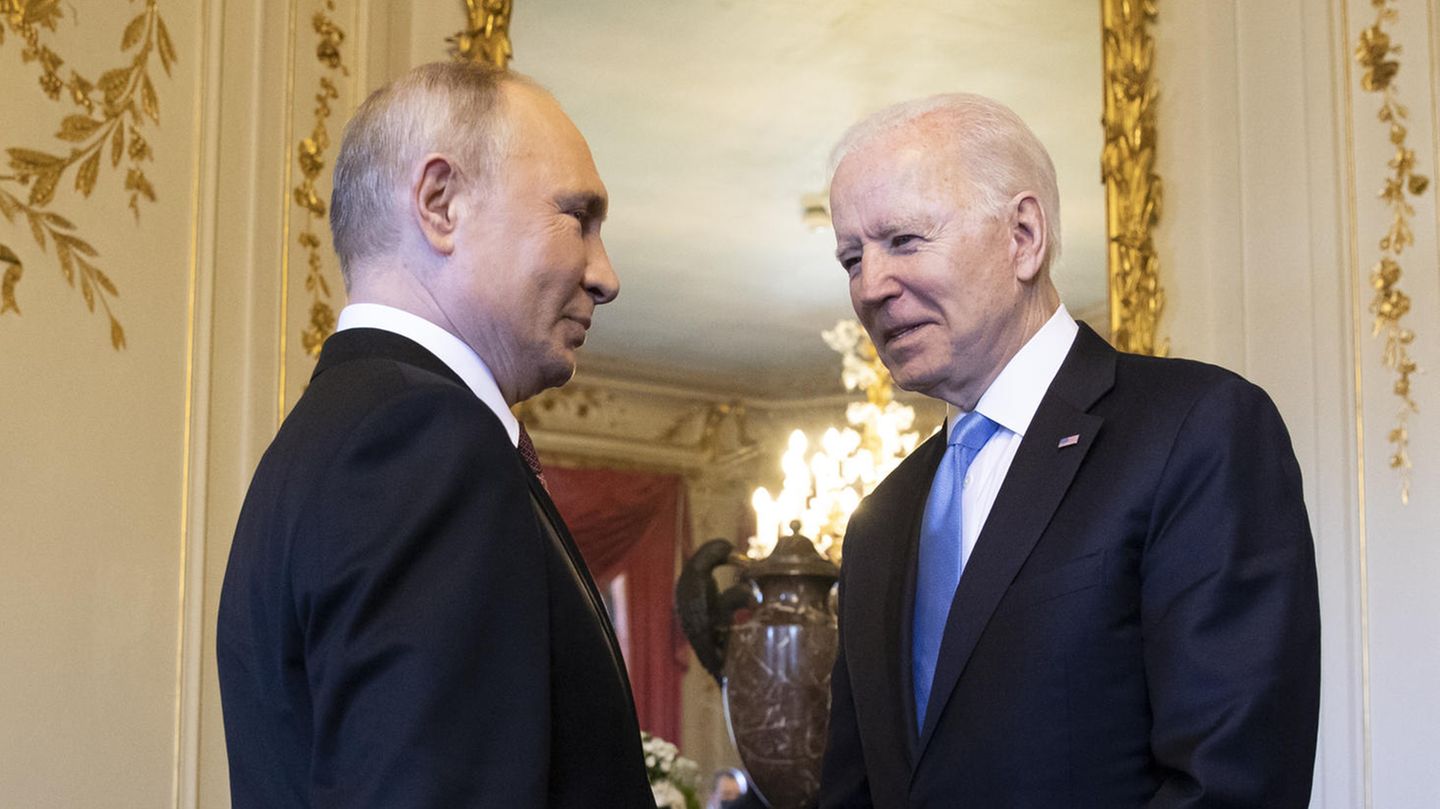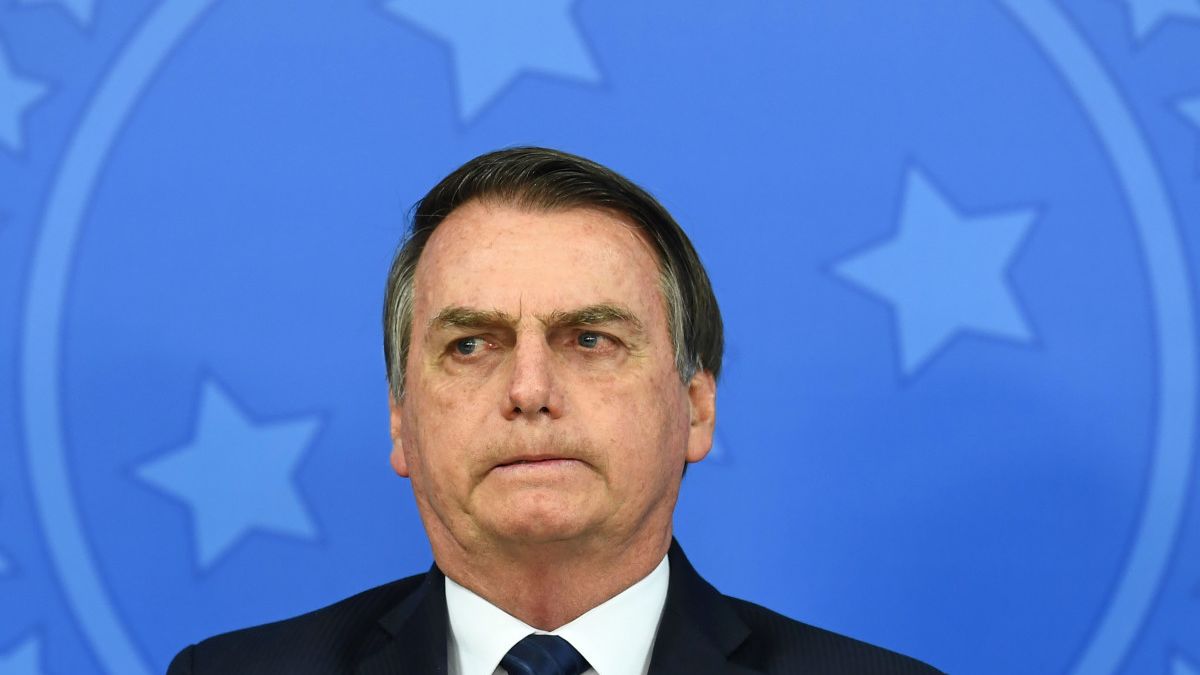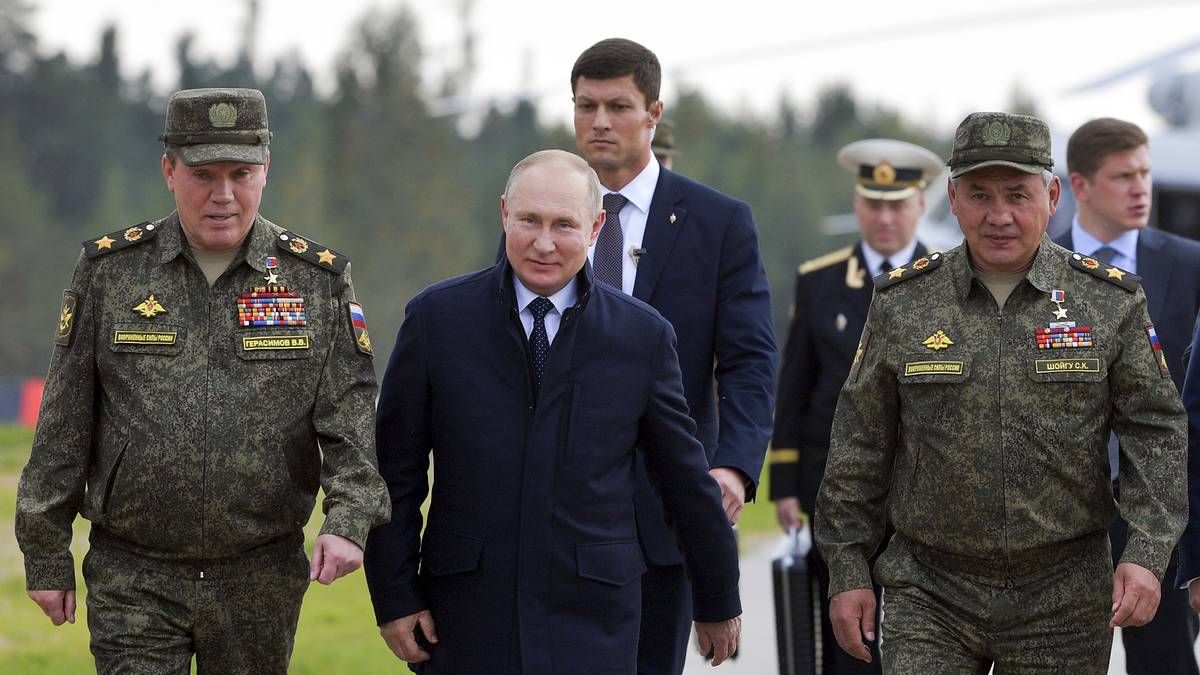analysis
After months of warnings, Russian troops have crossed the border into Ukraine. Despite this, the US does not yet classify the move as an invasion. But that could change quickly.
For months, the world community has been dealing with an anxious question: is Vladimir Putin planning an invasion of Ukraine with his troops? In a speech to the United Nations Security Council, the Russian President announced that he would “secure” the country’s separatist areas with his troops – and let them cross the border. But although Joe Biden’s US government threatened to crack down on an invasion, that hasn’t happened so far. Because: The border crossing has not yet been evaluated as such.
This was also shown by the rhetoric of the US government in the Security Council. The US Ambassador to the UN, Linda Thomas-Greenfield, said the troop invasion was “clearly the basis for Russia’s attempt to create a pretext for another invasion of Ukraine.” The reaction of the White House was correspondingly moderate. Sanctions such as a trade ban with the separatist areas were announced immediately, but the harsh measures threatened in the event of an invasion have not yet materialized.
No invasion yet, but violation of Ukrainian integrity
The reason for this lies in Russia’s announcement of the invasion of troops. True, Russian units have crossed the border of Ukraine. So far, however, they have been limited – as Putin also announced – to areas in which there had already been political movements calling for the union with Russia. “Sending Russian troops to the Donbas is not in itself a new escalation step,” a high-ranking government official said in an interview with journalists, according to the Washington Post. “Russia has had armed units in the Donbas region for the last eight years.”
But that does not mean that the US dismisses the troop invasion as harmless. It was a “clear attack on Ukraine’s sovereignty,” Thomas-Greenfield made clear in her speech. She dismissed Russia’s claims that the troops were supposed to keep the peace and protect the separatist areas from alleged aggression by Ukraine: “That’s very clearly nonsense. We know what they really stand for.”

hope for diplomacy
The fact that the USA is currently still reluctant to assess the situation is probably primarily due to strategic reasons. Like its European allies, the United States still wants to keep the door open for negotiations and avoid the outbreak of open war. The fear: Talking about an invasion now could drive President Putin off the negotiating table and remove the option of a diplomatic solution from the table. And thus trigger the armed conflict throughout the country.
Instead, the USA and its allies are planning to build up pressure with stricter sanctions and thus create the basis for further negotiations. Already on Tuesday they want to jointly decide on further sanctions. According to several press reports, according to employees of the US administration, these are not yet the tough measures announced in the event of an invasion. These would only come into play if Putin actually invaded other areas of Ukraine.
criticism at home
In the US, Biden has already had to put up with criticism for his strategy. After the political competition from the Republicans initially supported the government after the invasion, Biden’s hesitation in imposing tough sanctions is seen as a sign of weakness. “I stand ready to enforce the toughest sanctions with the Biden administration,” said Republican MP Lindsay Graham on Twitter. “The question is whether the Biden administration has the will and determination to do the same.”
The Russian President should be fine with this disagreement. “President Putin is sounding out the international system and is questioning our resolve,” said top US diplomat Thomas Greenfield in her speech. “He’s looking at how far he can push us all in front of him.” At the moment, the West does not seem to be sure about this either.
Swell: ,
Source: Stern
David William is a talented author who has made a name for himself in the world of writing. He is a professional author who writes on a wide range of topics, from general interest to opinion news. David is currently working as a writer at 24 hours worlds where he brings his unique perspective and in-depth research to his articles, making them both informative and engaging.




